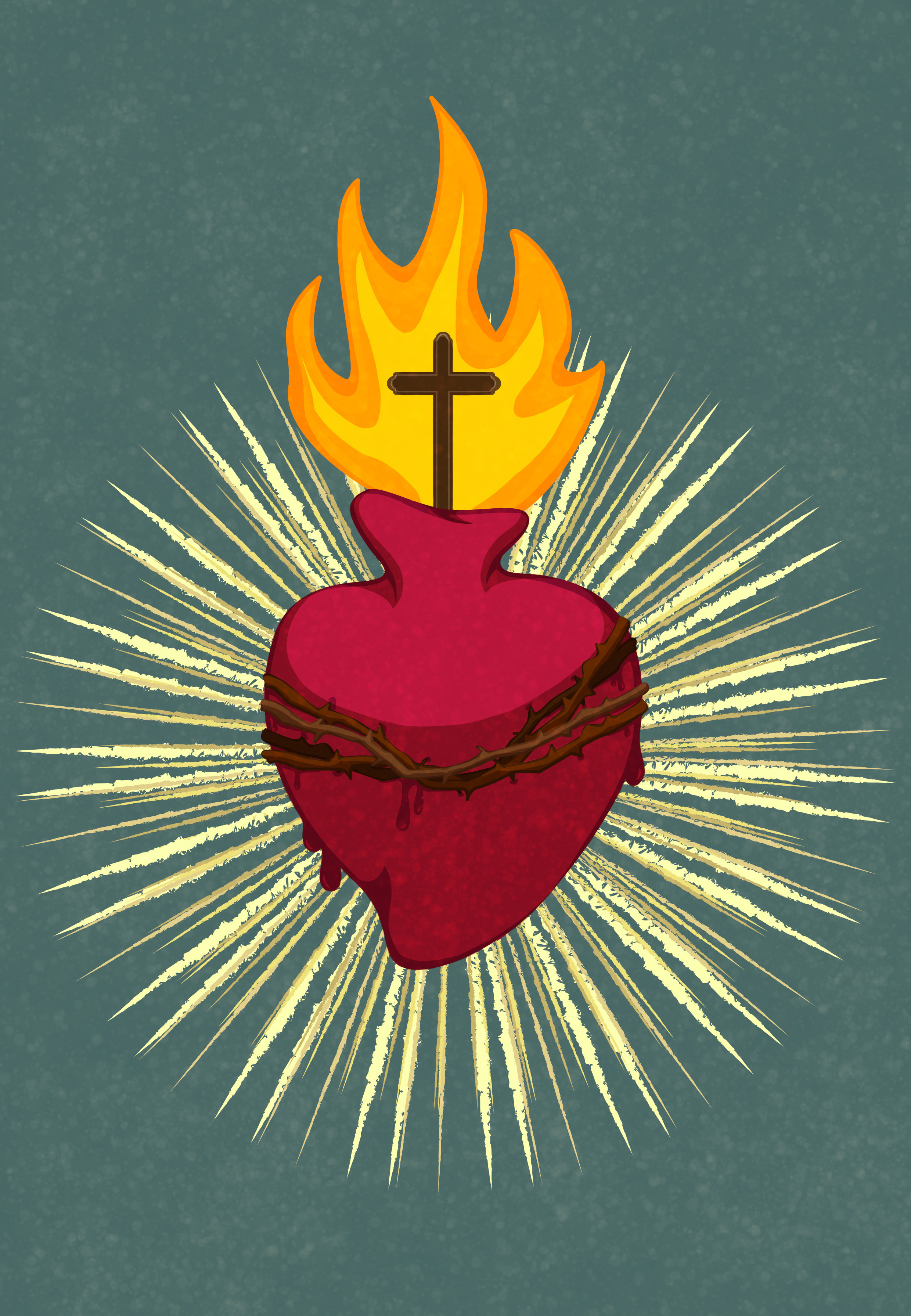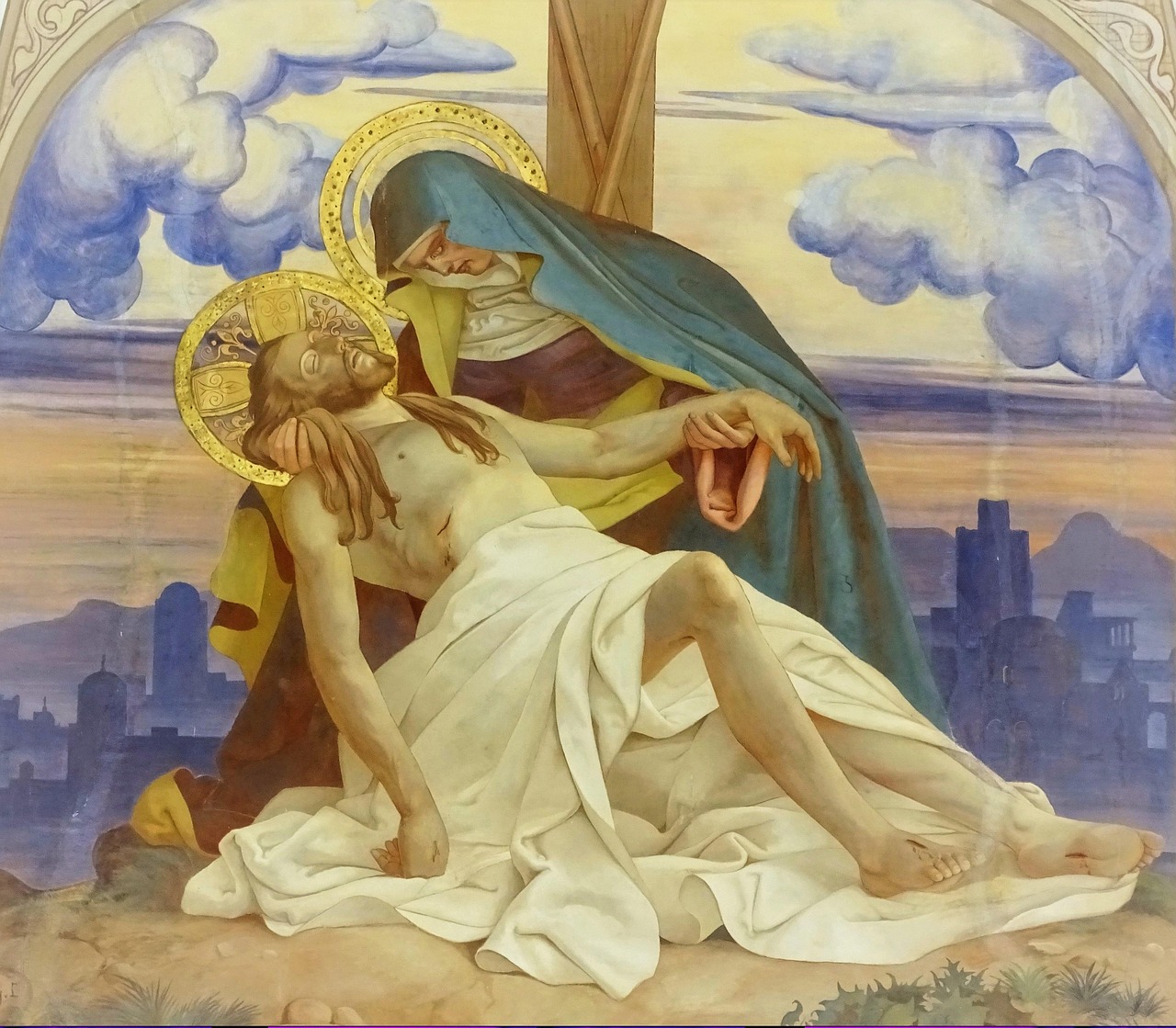Jesus has not come to abolish the law, but to fulfill it. He has not done away with the law, but he wants us to understand what it truly means and to live it deeply. God does not want external compliance, but obedience of the heart – doing His will and obeying His commands out of love.
Through this lens, Jesus’ words in today’s Gospel are very clear. The scribes and Pharisees are content with a superficial “righteousness,” in which they comply strictly on the outside (much for the sake of the good opinion of others, rather than the glory of God!) but have not allowed their hearts to be transformed by this compliance. Jesus is calling his listeners to understand the deeper meaning of the law and to obey from the heart. “You shall not kill” does not mean only refraining from murder, which is part of the natural law; as part of divine law, it means being God-like, working to be at peace with everyone, to refrain from sinful anger and insults and lack of forgiveness, because these are all deadly to the heart, if not the body. These things harm both the person toward which we direct them, and ourselves! It is a lose-lose situation.
God’s directives are always a win-win! We are called to examine our consciences: Do we harbor resentment against some people or hold them in contempt? Have we allowed anger and unforgiveness to fester within us, telling ourselves and those around us how we have been wronged or why we are right? Have we cut people out of our lives without being open to the possibility of reconciliation? Have we given the Sign of Peace to strangers at Mass, while refusing to offer peace to those close to us because of some real or imagined hurt? Do we pray the Our Father without taking to heart the words “forgive us our trespasses as we forgive those who trespass against us”?
This is critical. We must forgive others in order to be forgiven by the Lord! No one sees what is truly in my heart except the Lord and me. I must ask the Lord to help me see where I am harming others and myself, and ask for the grace to forgive fully (in difficult situations, the first step may be to ask for the grace to want to forgive them). When we have forgiven others, our hearts are free to receive the forgiveness and mercy that the Lord longs to give each of us.
This is the true freedom of the children of God.
Jesús no ha venido a abolir la ley, sino a cumplirla. No ha abolido la ley, sino que quiere que entendamos lo que realmente significa y que la vivamos profundamente. Dios no quiere un cumplimiento externo, sino una obediencia del corazón: hacer su voluntad y obedecer sus mandamientos por amor.
Desde esta perspectiva, las palabras de Jesús en el Evangelio de hoy son muy claras. Los escribas y fariseos se contentan con una “justicia” superficial, en la que cumplen estrictamente en el exterior (por el bien de la buena opinión de los demás, mucho más que por la gloria de Dios) pero no han permitido que sus corazones sean transformados por este cumplimiento. Jesús está llamando a sus oyentes a comprender el significado más profundo de la ley y a obedecer desde el corazón. “No matarás” no significa solamente abstenerse de asesinar, que es parte de la ley natural. Como parte de la ley divina, significa ser como Dios, esforzarse por estar en paz con todos, abstenerse de la ira pecaminosa y los insultos y la falta de perdón, porque todos estos son mortales para el corazón, si no para el cuerpo. ¡Estas cosas dañan tanto a la persona a quien las dirigimos como a nosotros mismos! Son situaciones donde todos pierden.
¡Las directivas de Dios son siempre beneficiosas para todos! Estamos llamados a examinar nuestras conciencias: ¿Guardamos resentimiento contra algunas personas o las despreciamos? ¿Hemos permitido que la ira y la falta de perdón se enconen dentro de nosotros, diciéndonos a nosotros mismos y a quienes nos rodean cómo nos han hecho daño o por qué tenemos razón? ¿Hemos excluido a personas de nuestras vidas sin estar abiertos a la posibilidad de la reconciliación? ¿Hemos dado el signo de la paz a desconocidos en la misa, mientras nos negamos a ofrecer la paz a quienes están cerca de nosotros debido a algún dolor real o imaginario? ¿Rezamos el Padrenuestro sin tomar en serio las palabras “perdona nuestras ofensas como también nosotros perdonamos a los que nos ofenden”?
Esto es fundamental. ¡Debemos perdonar a los demás para ser perdonados por el Señor! Nadie menos el Señor y yo ve lo que hay verdaderamente en mi corazón. Debo pedirle al Señor que me ayude a ver dónde estoy dañando a los demás y a mí mismo, y pedirle la gracia de perdonar completamente (en situaciones difíciles, el primer paso puede ser pedir la gracia de querer perdonar). Cuando hemos perdonado a los demás, nuestro corazón está libre para recibir el perdón y la misericordia que el Señor anhela darnos a cada uno de nosotros.
Esta es la verdadera libertad de los hijos de Dios.
 Kathryn Mulderink, MA, is married to Robert, Station Manager for Holy Family Radio. Together they have seven children (including Father Rob), and eleven grandchildren. She is President of the local community of Secular Discalced Carmelites and has published five books and many articles. Over the last 30 years, she has worked as a teacher, headmistress, catechist, Pastoral Associate, and DRE, and as a writer and voice talent for Catholic Radio. Currently, she serves the Church by writing and speaking, and by collaborating with various parishes and to lead others to encounter Christ and engage their faith. Her website is www.KathrynTherese.com
Kathryn Mulderink, MA, is married to Robert, Station Manager for Holy Family Radio. Together they have seven children (including Father Rob), and eleven grandchildren. She is President of the local community of Secular Discalced Carmelites and has published five books and many articles. Over the last 30 years, she has worked as a teacher, headmistress, catechist, Pastoral Associate, and DRE, and as a writer and voice talent for Catholic Radio. Currently, she serves the Church by writing and speaking, and by collaborating with various parishes and to lead others to encounter Christ and engage their faith. Her website is www.KathrynTherese.com
Feature Image Credit: Sean Foster, unsplash.com/photos/commandments-signage-jrazH5W7niA
The views and opinions expressed in the Inspiration Daily blog are solely those of the original authors and contributors. These views and opinions do not necessarily represent those of Diocesan, the Diocesan staff, or other contributors to this blog.


 Tami Urcia is a midwestern gal from a large Catholic family. As a young adulthood she was a missionary in Mexico, where she studied theology and philosophy. After returning stateside bilingual, she gained a variety of work experience, traveled extensively and finished her Bachelor’s Degree at Brescia University. She loves organizing and simplifying things, watching her children play sports, deep conversations with close family and friends and finding unique ways to brighten others’ day with Christ’s love. She works full time at Diocesan in the Software Department and manages the Inspiration Daily reflections. She is also a contributing writer on
Tami Urcia is a midwestern gal from a large Catholic family. As a young adulthood she was a missionary in Mexico, where she studied theology and philosophy. After returning stateside bilingual, she gained a variety of work experience, traveled extensively and finished her Bachelor’s Degree at Brescia University. She loves organizing and simplifying things, watching her children play sports, deep conversations with close family and friends and finding unique ways to brighten others’ day with Christ’s love. She works full time at Diocesan in the Software Department and manages the Inspiration Daily reflections. She is also a contributing writer on 
 Christine Arata is a San Francisco, California native. She lives a few blocks away from the ocean and a park. She finds nature inspiring. Her cat brings her comfort. She loves being creative not only with her writing but with almost everything, including her home cooking. Her studies in the Catholic faith are ongoing. In 2019, when she discovered St. Hildegard of Bingen was underrepresented by Catholics, she found a purpose. Her latest website, St. Hildegard’s Wisdom features blog posts about all of that:
Christine Arata is a San Francisco, California native. She lives a few blocks away from the ocean and a park. She finds nature inspiring. Her cat brings her comfort. She loves being creative not only with her writing but with almost everything, including her home cooking. Her studies in the Catholic faith are ongoing. In 2019, when she discovered St. Hildegard of Bingen was underrepresented by Catholics, she found a purpose. Her latest website, St. Hildegard’s Wisdom features blog posts about all of that: 





 Kate Taliaferro is an Air Force wife and mother. She is blessed to be able to homeschool, bake bread and fold endless piles of laundry. When not planning a school day, writing a blog post or cooking pasta, Kate can be found curled up with a book or working with some kind of fiber craft. Kate blogs at
Kate Taliaferro is an Air Force wife and mother. She is blessed to be able to homeschool, bake bread and fold endless piles of laundry. When not planning a school day, writing a blog post or cooking pasta, Kate can be found curled up with a book or working with some kind of fiber craft. Kate blogs at 
 David Dashiell is a freelance author and editor in the Nashville, Tennessee area. He has three children, a degree in theology, and enjoys writing about philosophy, theology, culture, music, and comedy. You can find his personal blog, Serious Daydreams, on
David Dashiell is a freelance author and editor in the Nashville, Tennessee area. He has three children, a degree in theology, and enjoys writing about philosophy, theology, culture, music, and comedy. You can find his personal blog, Serious Daydreams, on 

 [/tts]Deacon Dan Schneider is a retired general manager of industrial distributors. He and his wife Vicki have been married for over 55 years. They are the parents of eight children and thirty-one grandchildren. He has a degree in Family Life Education from Spring Arbor University. He was ordained a Permanent Deacon in 2002. He has a passion for working with engaged and married couples and his main ministry has been preparing couples for marriage.[tts ignore]
[/tts]Deacon Dan Schneider is a retired general manager of industrial distributors. He and his wife Vicki have been married for over 55 years. They are the parents of eight children and thirty-one grandchildren. He has a degree in Family Life Education from Spring Arbor University. He was ordained a Permanent Deacon in 2002. He has a passion for working with engaged and married couples and his main ministry has been preparing couples for marriage.[tts ignore]